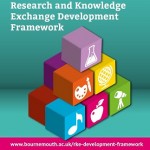Working with policy-makers is a really useful way of getting research recognised and used by professionals in the relevant field, resulting in an impact on society.
Not only can attempting to influence policy raise the profile of the research and have profound implications for society, it can also considerably raise the profile of the academic behind the research, creating room for possible new partnerships and future collaboration.
What is policy-influencing?
Policy-makers bring together evidence and politics to come up with policies and solutions for issues that affect everyone on a daily basis. They can incorporate a range of individuals; including those who are elected into political positions and civil servants who work in government departments, meaning there are a variety of ways in which research can lead to influencing policy.
Research can be particularly influential in policy influencing as it could provide the basis for an evidence-based change or amendment to legislation. This can be a very powerful way of developing research impact, but it can also be a very complex process.
How can you find out more?
BU’s Policy team, Jane Forster and Emma Bambury-Whitton are running two sessions as part of BU’s week-long series of research impact events which will explain how to use research to influence public policy on Wednesday and Thursday.
For further information about influencing policy, take a look at RKEO’s new impact toolkit.
 Influencing Public Policy Workshop
Influencing Public Policy Workshop Influencing public policy – training session
Influencing public policy – training session Academics! Book your place now for the ‘Engaging with policy makers’ session next Thursday
Academics! Book your place now for the ‘Engaging with policy makers’ session next Thursday










 New CMWH paper on maternity care
New CMWH paper on maternity care From Sustainable Research to Sustainable Research Lives: Reflections from the SPROUT Network Event
From Sustainable Research to Sustainable Research Lives: Reflections from the SPROUT Network Event REF Code of Practice consultation is open!
REF Code of Practice consultation is open! ECR Funding Open Call: Research Culture & Community Grant – Apply now
ECR Funding Open Call: Research Culture & Community Grant – Apply now ECR Funding Open Call: Research Culture & Community Grant – Application Deadline Friday 12 December
ECR Funding Open Call: Research Culture & Community Grant – Application Deadline Friday 12 December MSCA Postdoctoral Fellowships 2025 Call
MSCA Postdoctoral Fellowships 2025 Call ERC Advanced Grant 2025 Webinar
ERC Advanced Grant 2025 Webinar Update on UKRO services
Update on UKRO services European research project exploring use of ‘virtual twins’ to better manage metabolic associated fatty liver disease
European research project exploring use of ‘virtual twins’ to better manage metabolic associated fatty liver disease